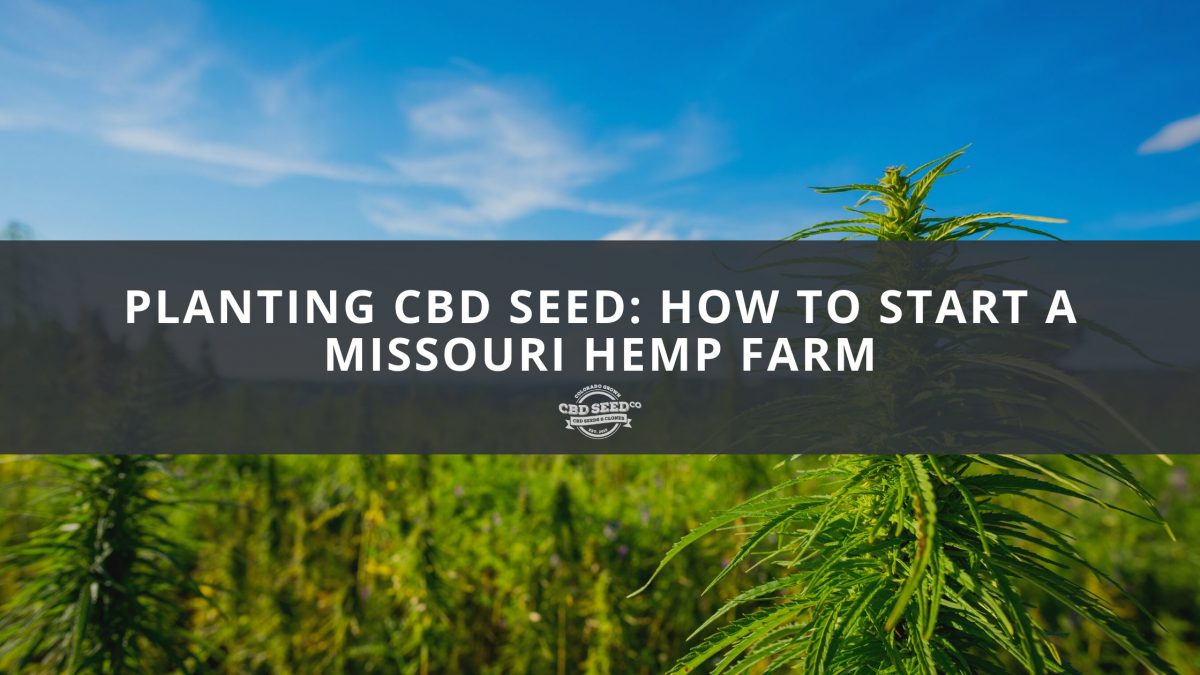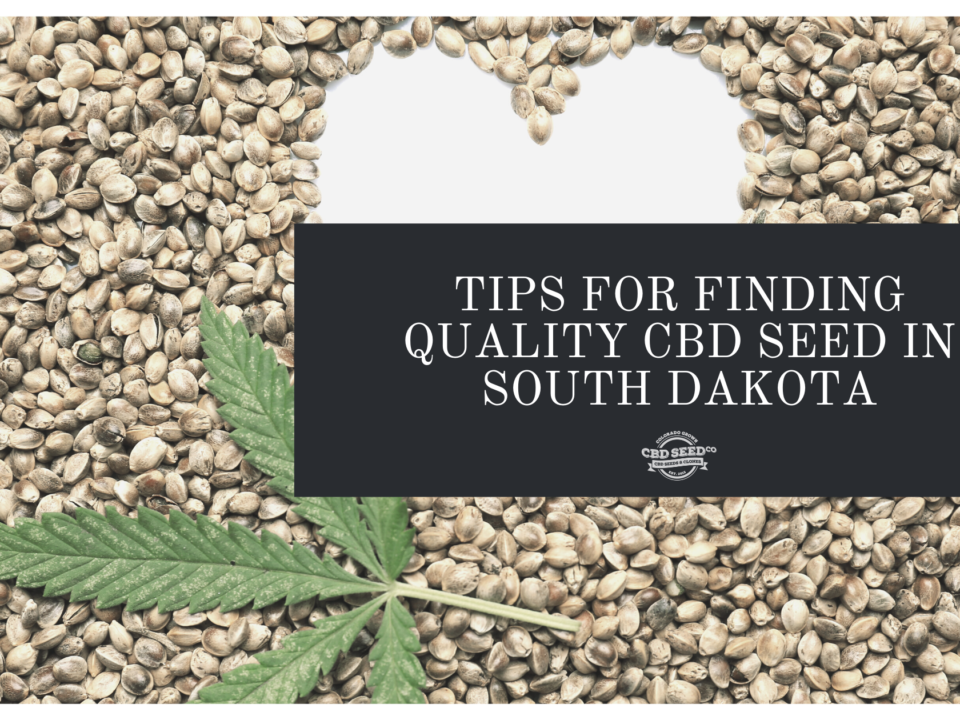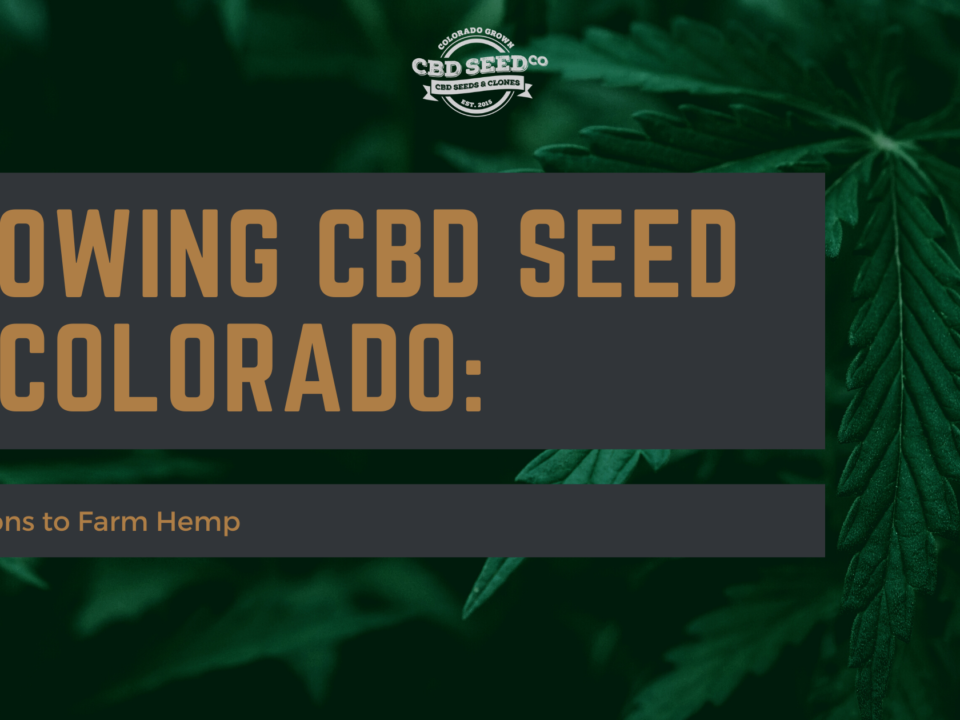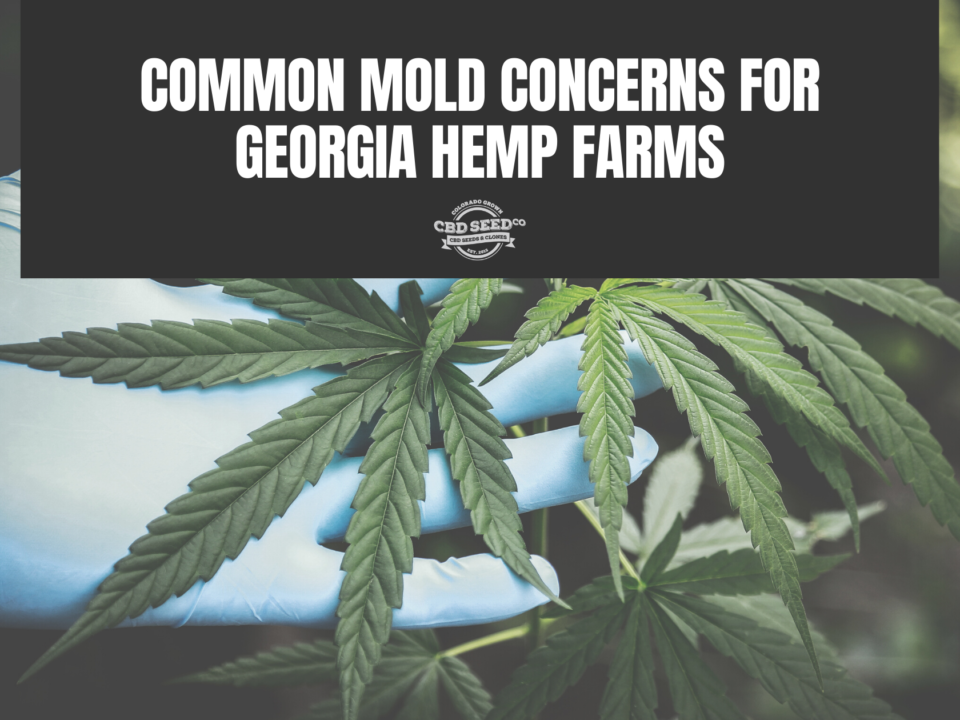Planting CBD Seed: How to Start a Missouri Hemp Farm

How to Start a Hemp Farm in Arizona to Plant CBD Seed
September 22, 2020
10 Tips for Improving Profits When Planting CBD Seed In California
September 30, 2020With the recent passing of the 2018 Farm Bill, now almost all states have their own USDA-approved hemp regulatory program. Farmers in Missouri have the opportunity to enter to unique, exciting hemp market in order to tap into the CBD industry. While hemp has the potential to be a lucrative crop for farmers, it does require substantial planning and research. In order to achieve long-term success in your hemp farm, you’ll need to take the proper steps before you get started planting CBD seed. Here’s a comprehensive guide on how to get started.
Steps for Starting a Missouri Hemp Farm to Plant CBD Seed
- Make sure to do your homework: Hemp farming is a whole different animal when compared to other crops. While it can be really exciting for anyone starting a hemp farm, please be patient and take this time to do your homework. The first step is learning everything you possibly can about how hemp cultivation works as well as the regulations in your state. Google is always a good resource for researching hemp farming but it won’t be comprehensive. It’s a good idea to seek out local hemp associations so that you can network with other farmers that may have the experience or knowledge you lack.
- Understand your hemp farming goals: It’s important to establish your goal before you start investing and taking the first steps in creating your farm. For farmers interested in cultivating hemp for building materials, food, textiles, or any of these industrial applications, you’ll want to set up your farm for this purpose. For farmers interested in cultivating hemp for CBD production, you’ll need to find CBD seed and understand the differences in growing requirements.
- Start looking for your customers: Having customers lined up before your harvest can provide a stress-free process for selling your biomass. Since hemp can’t be stored in silos like grain or corn, you’ll really want to prioritize this step. Another benefit of finding customers at this stage is that it can help you confirm which strains you should grow. For instance, you may find a customer looking for Cherry HD smokeable hemp flower or another that wants to process CBG oil– this gives you a competitive advantage over other farmers.
- Establish your business plan: Business plans aren’t the most exciting thing but they are definitely necessary for your success. Establishing your business plan now can reveal potential concerns or problems, helping you develop strategies and solutions while you’re still in the planning phase. This can help you save significant time and resources down the line. When writing your business plan, make sure to include a SWOT analysis, financial plan, organizational structure, operating plan, sales strategy, and local hemp market overview. As you create your financial plan, it’s best to be modest when it comes to your profit estimates. As a first-time hemp farmer, you’ll want to account for the learning curve and beginner mistakes you may encounter.
- Develop your hemp testing and compliance plan: Hemp farming has the unique challenge of critical regulations that are regulated by the Missouri hemp farming program and are set in place by the USDA. All hemp must contain 0.3% THC or less in order to remain federally legal. Having your testing plan in order before the growing season can help alleviate the stress of hot crops. It’s recommended that you start testing your hemp about a month after germination and every two weeks up until harvest. It may be a good idea to even increase the testing frequency the closer you get to harvest. Make sure to find a trustworthy lab to test your samples.
- Decide on your irrigation system: Hemp can grow successfully with numerous irrigation systems, including pivot irrigation, subsurface irrigation, drip irrigation, and flood irrigation. Take the time to consider what works best for your Missouri hemp farm and make sure to account for the additional costs in your financial plan.
- Apply for your hemp farming license: You can find all the information needed regarding licensing, costs, and permits for hemp farming in Missouri here. Some states require additional registration with local cities or counties– make sure to research all the relevant regulations and apply for the appropriate licensing. You can always consult with a legal professional if you have any questions or concerns with the licensing portion.
- Purchase equipment and find labor: Greenhouses are optimal for planting CBD seed. This is just one example of the required equipment you’ll need for cultivating hemp. Make sure you have all of the equipment you need and also start looking for labor. Hemp is quite labor-intensive so finding experienced help is important. You’ll want to check your farm daily so make sure you have the help you need.
- Get your fields ready for planting: Having your fields prepped and ready can help ensure that you are planting into ideal conditions so your hemp is healthy and strong. In order to develop the right plan for your farm, soil conditions and regional environment play a major role. Have your soil tested for the essential macronutrients needed. You’ll want to also make sure that your soil is drained properly and is light and airy before planting.
- Buy your CBD seed: Finding a reputable CBD seed supplier is important for the success of any farm. Always purchase known genetics– unknown genetics may be more affordable but will critically damage your farm since you won’t be able to properly plan for the strain-specific cultivation needs. Also, don’t fall for the trap of buying industrial hemp seed if you’re planning on producing CBD; there isn’t enough CBD content to make this worth your while. Find reliable seed genetics from a knowledgable dealer that can provide you with all of the strain cultivation requirements.
Work with Missouri’s Trusted CBD Seed Supplier
CBD Seed Co. is honored to be the trusted CBD seed supplier serving the state of Missouri. Work with our team of farmers to gain access to our expertise and experience. For more information regarding what steps you need to take for starting a hemp farm, please contact us!





